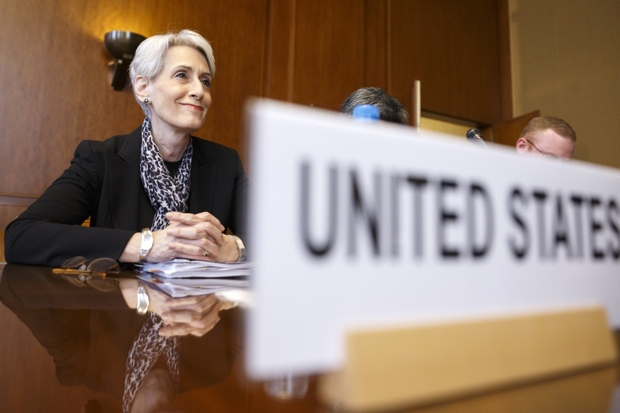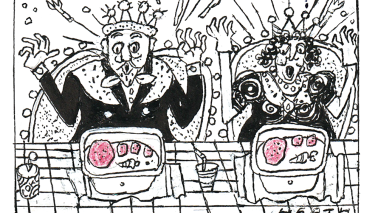It is probably safe to say that the negotiations with Iran aren’t going very well. As the 30 June deadline for a final agreement looms America’s top negotiator Wendy Sherman has just announced that she will resign shortly after, telling the New York Times that it has been ‘two long years’ in that position. Meanwhile the Iranians are now saying that they want the deadline for reaching an agreement extended, with the Obama administration insisting that’s not an option. To make matters worse unconfirmed reports have recently emerged claiming that a delegation of North Korean nuclear weapons experts have been paying regular visits to Iranian military facilities. These being the same military sites that the French government is now arguing must be put under inspection as part of the terms for any final agreement.
Critics of President Obama’s diplomatic outreach to Iran have for some time now claimed that the Iranians are simply using ongoing negotiations to buy time for advancing the regime’s nuclear programme. These voices argue that any deal that would emerge from negotiations would ultimately be too weak to ensure that Iran wouldn’t still eventually produce nuclear weapons.
We are used to hearing calls for Obama to take a tougher stance coming from the Saudis, from Israel’s prime minister and from Washington’s foreign policy hawks. But the fact that we are now also hearing similar noises coming from the French is significant, not least because France – like Britain – is one of the six world powers included in the American led negotiations with Iran. In the end both Britain and France would have to sign off on a final agreement.
Yet in recent days the French Foreign Minister Laurent Fabius has made clear that France will sign no such agreement if it does not guarantee full inspections of Iranian military sites. But only last week Iran’s Supreme Leader Ayatollah Ali Khamenei explicitly ruled out the possibility of military inspections.
Ever since the beginning of April, when negotiators announced that they had agreed a framework outlining the final parameters for an agreement with Tehran, the Obama administration has claimed that ‘anytime, anywhere’ inspections will be part of the package. But no sooner had the White House released its factsheet on what at first reading appeared to be a surprisingly promising framework agreement, and the Iranians were already disputing and denying almost everything in it.
Just days after a rather self-assured Obama proudly presented the framework agreement to the world, Iran’s chief negotiator Abbas Araghchi told the Persian media that ‘the factsheet has no legal value’ and dismissed it as simply being the American ‘narrative’. At the same time Iran’s defence minister brushed off reports that military inspections had been agreed upon, referring to the claim as a ‘lie’ and stating that this would be a red line for the regime.
Nevertheless, the French insistence on military inspections is quite sound. It is after all the military dimension of the Iranian nuclear programme that would be of primary concern to the international community. The head of the International Atomic Energy Agency, Yukia Amano, has already made clear that military inspections are a necessity. But as the UN’s nuclear watchdog also pointed out, this would simply be to subject Iran to the same procedures as the other 120 signatories of the Nuclear Non-Proliferation Treaty (NPT). Iran is only being asked to live up to obligations that it has already committed itself to previously.
‘If Iran cheats, the world will know’ asserted Obama as he unveiled the finer points of the framework agreement. That is the underlying premise behind the administration’s thinking on this agreement. As far as Western interests are concerned, the deal only makes any sense if we can be sure that Iranian breaches of the agreement would be detected far enough in advance for there to still be time to take action before Iran could to move to full weaponisation.
That is why the French are quite right to be demanding that military inspections be kept on the agenda. We can’t know what is going on inside that negotiating room, but from what is being said outside it sounds like the Iranians may be pushing back on military inspections, and from the French protests we might assume that Obama’s negotiators are close to caving.
Now would be a good time for the British to join the French in making military inspections a non-negotiable part of any agreement. Since taking over as Foreign Secretary Philip Hammond has backed Washington’s negotiating approach. But Hammond has also been steadfast in opposing Iran’s pathway to bomb. A negotiated agreement will only have any hope of blocking that pathway if inspections of military sites are guaranteed. As one of the six world powers responsible for these negotiations, now would be the time for Britain to speak up.
Tom Wilson is Resident Associate Fellow at the Centre for the New Middle East at The Henry Jackson Society






Comments